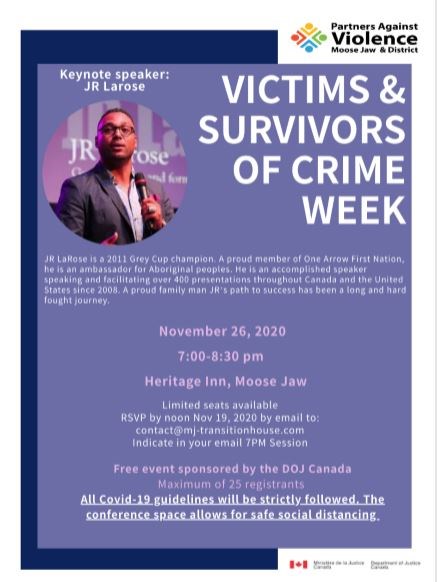Restorative Justice is an alternative response to crime that focuses on bringing together all parties who have been affected by a criminal incident, with the goal of addressing needs, risks and behaviors that lead to crime.
The purposes of the programs are victim participation, offender accountability, meaningful outcomes, healing of broken community relationships and reduction of recidivism.
- An essential part of Restorative Justice is promoting healthy communities and positive relationships, striving to meet the needs of all people involved who have been affected by an offence in a meaningful and all-encompassing, victim centered approach.
- Restorative Justice addresses underlying issues as a powerful instrument for change in order to stop the cycle of harm.
- Restorative Justice endeavors to repair harm and focus on people learning from past actions, using mistakes as opportunities for individuals to learn.
- Restorative Justice focuses on damage that has been done to relationships, repairing the harm and empowerment since the people who have been affected are guiding the process, therefor reintegrating the offender in to the community.
- Restorative Justice focuses on satisfaction for all parties, looking at the collective community, compassion and forgiveness being essential to living in harmony.
Traditional Criminal Justice Asks:
- What offence has been committed?
- Who is the offender?
- What should the punishment be?
Restorative Justice Asks:
- Who has been affected?
- What are the underlying issues that led to the offence?
- Who is responsible for repairing the harm?
The John Howard Society of Saskatchewan - Moose Jaw Branch is a community-based justice organization consisting of people who subscribe to effective, just and humane responses to the causes and consequences of crime. The Moose Jaw Branch offers the following programs:
- The Adult Alternative Measures Program for adults who are in conflict with the law.
- The Extra Judicial Measures/Sanctions Program which are processes outside of the criminal justice system for young people, from 12-17 years old.
- The Stop Lift Program for adults and youth who have been charged with theft, primarily from retail outlets and businesses.
- The Fine Option Program helps people settle court imposed fines through supervised community service work. The Community Service Order Program requires individuals to complete court ordered community service hours.
Submitted by: Lindsay Wilcox, BHJ
John Howard Society of Saskatchewan Moose Jaw Branch
Member of the Partners Against Violence Committee
 Partners Against Violence
Partners Against Violence



